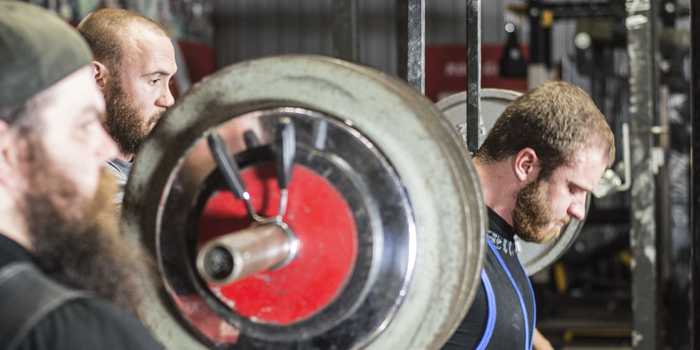
After a brief conversation with a friend and fellow powerlifter, John Greaves III, about what attracts people to powerlifting, I began to ponder what aspects of powerlifting draw people to the sport. During interviews, most athletes are asked why they choose their sport. Most would state with conviction, “The sport chose me.” I could attest to the same mantra, seeing how I fell ass-backward into powerlifting at the ripe old age of 23. But I'll get to my story in a little bit. First, without insulting anyone's intelligence, I would like to elaborate on what powerlifting is for those who still believe it involves the snatch and clean and press.
Put simply, powerlifting is an event where practitioners come to test their might in the squat, bench press, and deadlift for a supramaximal stimulus in each lift. Each participant has three attempts to lift the highest amount possible for a total amount lifted, used to decide the winner of the contest. Although enticing to some, why would anyone decide to practice and compete in powerlifting? Why would someone want to put their body—and nervous system—through so much agony? I decided to look a little deeper into why someone would choose to manifest their skills in powerlifting in lieu of others, perceivably more rewarding, sports. After all, there is much to be said about how powerlifting is a “volunteer sport.” There are minimal financial incentives for competing and winning, in a powerlifting meet.
RELATED: How to Know If You Are Ready for Your First Powerlifting Meet
In fact, most powerlifting federations do not distribute any sort of monetary reward for a first place winner. And with there being up to nine different weight classes embedded in a multitude of divisions (Youth, Teen, Open, Masters, etc.), that would amount to a tremendous amount of cash and/or prizes to distribute among the winners. Keep in mind that I am not referring to the cash prizes for those exceptional lifters who win XPC and USA Powerlifting at the annual Arnold Sports Festival, which culminates to $50,000 between the two federations. Those meets are for the lucky few who are able to qualify and are fast enough to register in time. Additionally, these types of meets are few and occur only annually. Lifters are not able to make a living by these means. Moreover, this is more in reference to meets at or lower than the national level. Here, many directors in lieu of an enormous cash payout will award a cash prize for the lucky guy or girl dubbed “Best Lifter.” For example, the US Powerlifting Association (USPA) offers cash prizes for the Best Lifter at their annual USPA World Championship in Las Vegas.
A Best Lifter is someone that, against all variables, managed to have the better day overall. The title is similar to the MVP in other sports except this award is calculated using their total weight lifted and their body weight. A Wilks Coefficient is the mathematical equation used to calculate the score needed to determine the award recipient. Typically, using Wilks, lighter lifters will have an advantage if they can have a better pound-for-pound type of day. Nevertheless, a vast majority of powerlifting federations do not offer monetary reward for this achievement. There are a few meet directors that will award their Best Lifter with useful items such as custom, embroidered lifting belts, while most provide a plaque or trophy to honor the lifter.
Therefore, why would anyone wish to participate in a sport with no distinguishable path for upward mobility (there is no such thing as a “professional powerlifter”) or cash payout? Short of winning a few national or world championships, most lifters can count out the possibility of scoring an athletic sponsorship to help offset a few costs for the meets, travel, and gear. It is there that we identify our void; why on earth would you want to compete in powerlifting?
My own answer to this question is not unlike many of you reading this right now. I first began to flirt with powerlifting after meeting a former powerlifter at an Air Force Base in Louisiana. This came at an optimal time because I had several failed attempts to develop a successful bodybuilding career. Powerlifting presented itself to me unlike any other strength sport. The history of powerlifting was long and had depth and was not as widely discussed as other strength sports such as bodybuilding and of course Olympic lifting. However, history shows us that powerlifters are the pinnacle for what weight training was invented for: to be as strong as possible in the most efficient way possible.
I did as much research on the sport as I could with the resources I had at my disposal (the internet). I was serving a tour of duty in Baghdad, Iraq when I decided to compete in my first full unofficial powerlifting meet. My numbers were so horrendous they’re not even worth mentioning. Nevertheless, it served its purpose. I knew that with the right training and a constant focus I could achieve everything I had always imagined and much more.
Upon returning from my tour in Baghdad, I relocated to Ohio and found an up-and-coming gym called The Dirty Gym in Dayton. Here my career began to blossom under the tutelage of Marcus Uncheck, owner and head coach of The Dirty Gym. In other words, I wanted to be a part of the strength training lifestyle and was hooked on powerlifting after my first official meet. I've now begun to fully immerse myself in the sport. Each and every day I work to become better, now under the direction and guidance of elitefts team member and powerlifting icon Steve Goggins. I am well aware of my story and I really wanted to know why others choose this wonderful sport that seems to be growing at an unbelievable pace. Here’s what some had to say:
Testimonials
“I started lifting weights at the age of 15 and I really enjoyed it. Unfortunately, my high school didn’t have powerlifting so I joined wrestling and learned how the concepts of weightlifting and how it benefited wrestling. Therefore, my love for lifting weights began with wrestling. After high school, I joined the US Air Force, and entered my first powerlifting meet, the Push/Pull Warrior Classic in Aurora, Colorado, and garnered first place in my weight class in the junior division. I fell in love with the sport at that very moment.
The sport helps me become a better person both in and out of the gym. If powerlifting didn’t exist, I feel like I would be a failure, the opposite of who I am. My goals in the sport are to total at least 1,250 pounds in the 148-pound weight class, as well as totaling over nine times my own body weight, which I expect to happen within the following year or so. I [also] love powerlifting because of heavy lifting, the therapy, and the physical satisfaction I experience. Additionally, the crowd, community, as well as the friends who continue to support me. They feed my dedication and drive my motivation and will to continue on and make a name for myself.” — Benny Lee, US Air Force Powerlifting, Three-Time USAPL Military Nationals Champion
“I've been powerlifting for just about five years now. I started competing later in life compared to most other lifters who start in their teens. However, prior to powerlifting, I played in Arena 3 and Minor Professional Football for 15 seasons. After two national titles and two championships, I discovered my place in powerlifting. I began training at Olympic Gym in San Antonio, Texas. Here, I was able to rub shoulders with the likes of Jill Mills, Gene Bell, Ian Bell and so many more inspiring people. My training partner at Olympic was an established USAPL National Champion; he and Gene recognized some potential in me and asked if I'd like to get into powerlifting. At the time I was still playing football so powerlifting didn’t fit my training regimen. However, a solid 12 months later I entered my first meet at 39 years old. I caught “the bug” and won my first six or seven meets thereafter, earning a shot at the National Team for 2014 IPF World Championship. I could not compete on the team due to budgetary constraints and was reduced to being identified as an alternate in 2015.
After these two shortcomings, I am driven by the desire to be the best version of myself that I can be. I love powerlifting because I am able to harness what I’ve learned up to this point and use it to motivate, empower, and encourage others to try the impossible and believe in themselves. I’m also excited to be able to compete against some of the best and toughest competitors in the world, as well as being afforded the opportunity to meet new people and learn as much as I can from other lifters. My tenure in the sport is still very young and I still have much more to learn. With the support of a few close friends, family, and especially my Bell Power Systems teammates, my future looks mighty bright. If I were to compete in any other sport it would have to be something that challenges everything about my character and physical ability just as powerlifting does. This is my true love.” — Marcus Warren, Bell Power Systems
“I was introduced to the powerlifting movements (squat, bench press, and deadlift) in 2005 while deployed overseas. A scrappy 120-pound kid was moving—what I thought was—a ton of weight for his size, and it caught my attention. I quickly became his protégé weighing in at 163 pounds. Reflecting, I believe the reason I was drawn to powerlifting was due to my background in wrestling as a kid. I started wrestling when I was five years old and continued to wrestle through high school. I even wrestled for a few years after enlisting in the Air Force. It wasn’t until other obligations consumed much of my time when I had stopped wrestling. Even then, I would coach and continue to still assist now that my son wrestles. I believe the individuality of wrestling while representing yourself on the mat speaks volumes of what you are capable of without the direct support of team members to bail you out if you’re underperforming. The outcome depends on you and you alone. I feel powerlifting embodies the same concept with the only difference being that my opponent is not a human being — it’s gravity! The capstone of my preparation off the platform is a 27-second defiance of gravity. Success or failure depends on no one but me and I LOVE IT!
I continue to stay motivated and pursue powerlifting for so many reasons, but the chief reason is my physical and mental health. I train at 4 AM, and my ability to control the outcome of something in my life first thing in the morning motivates me before my day even starts, thus creating a positive attitude for the rest of the day, as I feel accomplished before 7 AM every day. I first competed in powerlifting in January 2014 and managed to break and extend a few Illinois state records while I was there. I was inspired by individuals like my dad, Dan Green, as well as the Lillybridge family. Even while being actively engaged in powerlifting, I still participate in other intramural sports such as softball, baseball, and football. However, I do not exercise the same dedication or determination as I do with powerlifting. My role models and fellow service members, Donald Bigham, Troy Saunders, and Mike “Bird” Parrott help drive me forward and have helped propel me to two state championships, a USAPL Military Nationals Championship, as well as a world record deadlift with USPA/IPL. I gravitate toward individuals that share the same passion and I can also relate to their "real life" perspective. We all share the military lifestyle but make the impossible possible through hard work, dedication, discipline, and determination!” — Michael Lear, Military Muscle’s “Morior Invictus”, IPL World Champion
“With breaks due to collegiate baseball, family priorities, as well as deployments overseas, I have competed in powerlifting for over 10 years. I was inspired by Sly Anderson — the man, the myth, the legend. Sly planted the seed in my soul to pursue powerlifting back in 1991 in Okinawa, Japan. He was the Far East Powerlifting Coach for the US Marines and a 10-Time World Champion. He was no doubt a super freak in and out of the gym and his workouts smoked me and motivated me to come back for more pain! Besides getting my ass kicked by Sly, so much about powerlifting excites me. First, the opportunity to share my gifts that God bestowed in me through moving some heavy weight. Such a blessing to be an instrument for his message and powerlifting is no doubt a gift that God wants me to use as often as I can. To see all your training and preparation reflected in nine minute, four to six times in an annual calendar, is an unspeakable thrill that not many activities can provide. I’m always inspired to keep pushing by my brothers and sisters in the US Armed Forces who compete in powerlifting. I view all of them as my role models. Of course, my role model on high is Jesus Christ. He loves me unconditionally and never turns a shoulder to me, regardless how many times I fail him. Additionally, my beautiful sweetheart, Kelly Bigham, is my rock. I am also inspired by my father, mother, and brothers.
I love to train and just as much as I love setting goals and expectations. I have been this way for so many years and I don’t know of any other sport that can meet my expectations as often as powerlifting. I played college baseball at an older age (29-31) and I also competed on numerous US Army intramural teams such as football, baseball, basketball, and softball, but none compare to powerlifting as a sport. I still compete at a young age of 44! I have amassed four national championships as a masters (M1) lifter, as well as two IPF World Championships in two different weight classes (93-kilogram and 83-kilogram). I couldn’t imagine competing in any other sport unless someone takes my position on Team USA for USAPL. However, I maintain balance as a well-rounded athlete by participating in CrossFit, Spartan Races, and sustaining my performance as a tactical athlete. I certainly move weight better than the latter. One Time!” — Donald Bigham, One Time Powerlifting, Two-Time IPF World Champion and Four-Time USAPL National Champion
From these testimonies, we can clearly see that powerlifting is about how the training, preparation, community, culture, and how each meet makes the individual feel about themselves. There is certainly a plethora of other sports available to many people, although some sports or activities are more prominent in some areas than others. Adequate access to these sports may be a long shot for most.
Many lifters mention that powerlifting is their way of testing their strength in order to validate their efforts in the gym. Although understandable, and possibly universal, there are numerous alternatives to test your might outside the realm of organized powerlifting meets. It seems ubiquitous that a powerlifter’s journey begins in other sports. Others just have a passion for lifting heavy weights and the majority of lifters catch “the bug” after attending their first meet. However, regardless of the “why”, powerlifting is continuing to grow at an alarming rate and I’m just delighted to be a part of it. If any of the stories highlighted here resemble yours, I would certainly love to hear about it! Keep lifting and continue growing the community — and who knows, we may even see a powerlifting event featured on a major television network some day.
The above interviews were edited for length and clarity.









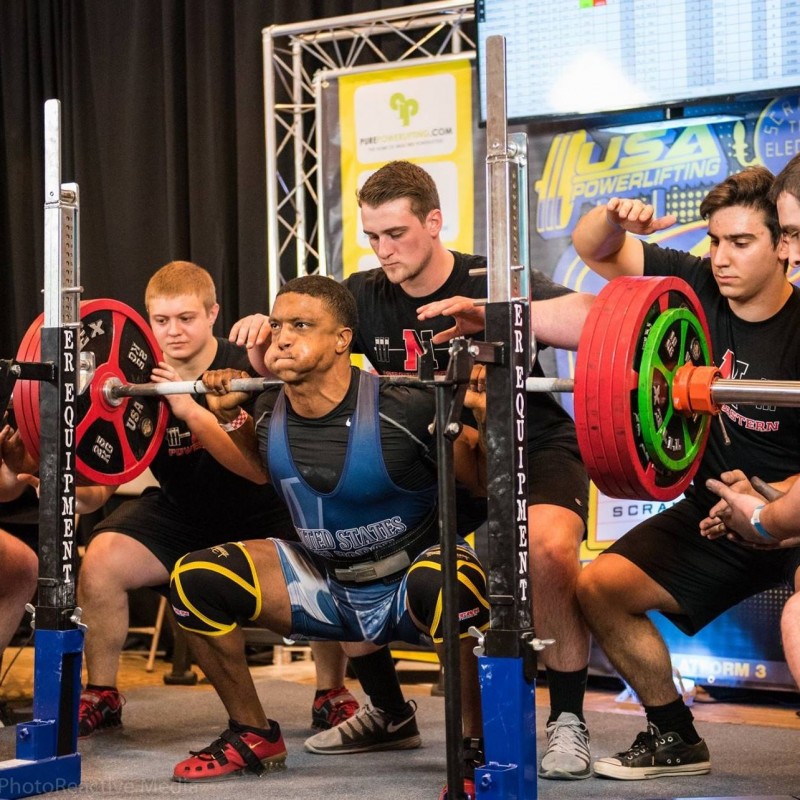
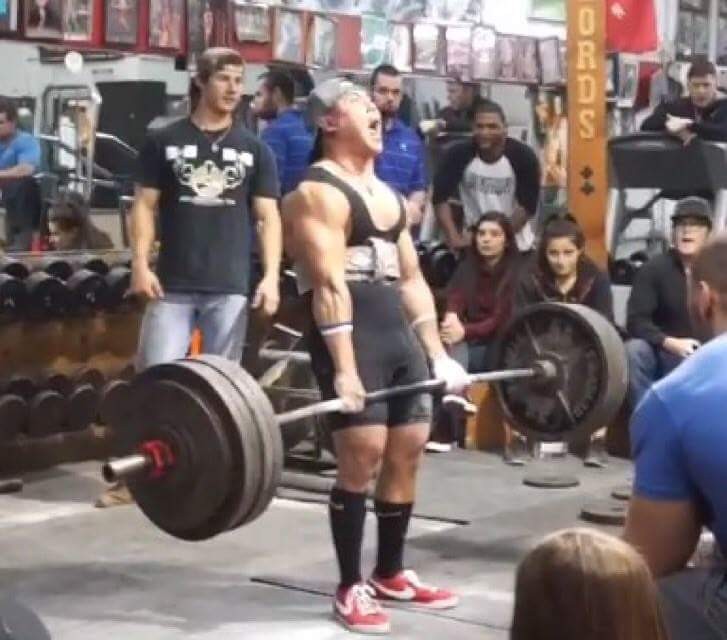
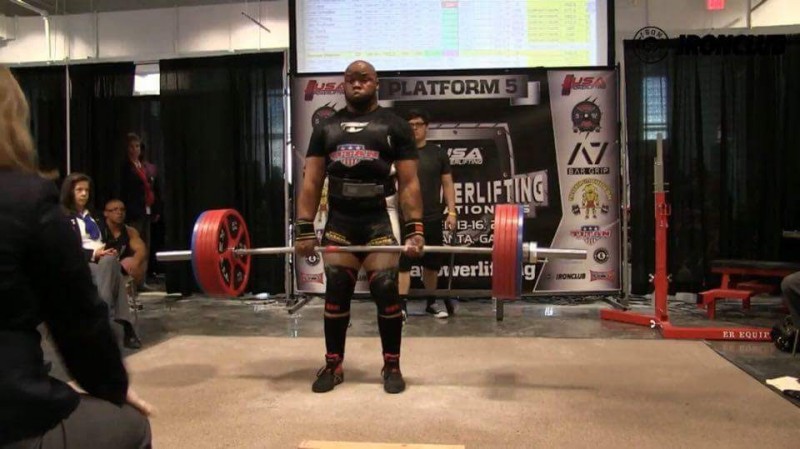
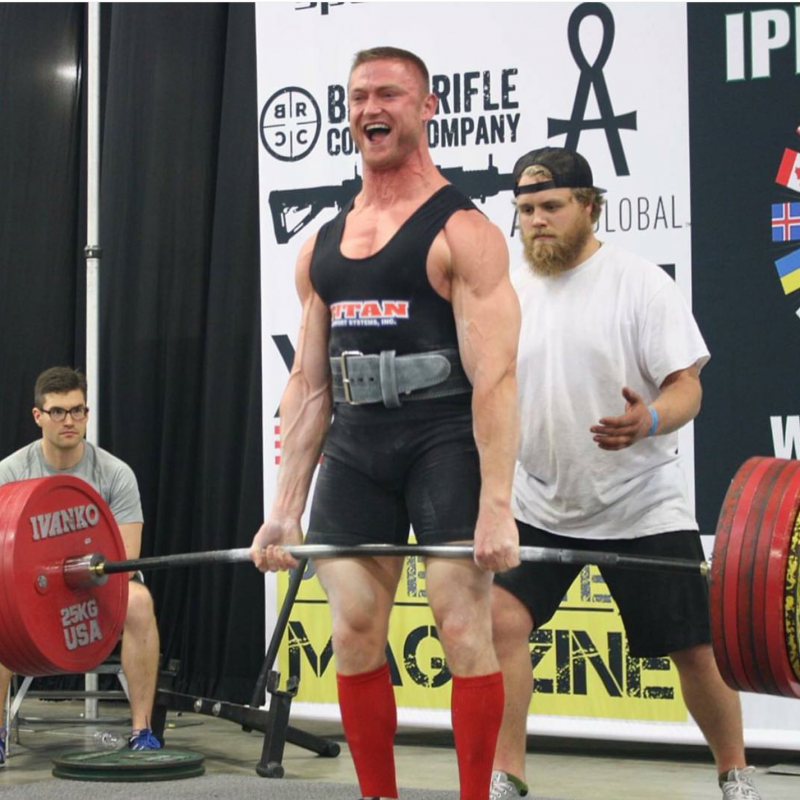
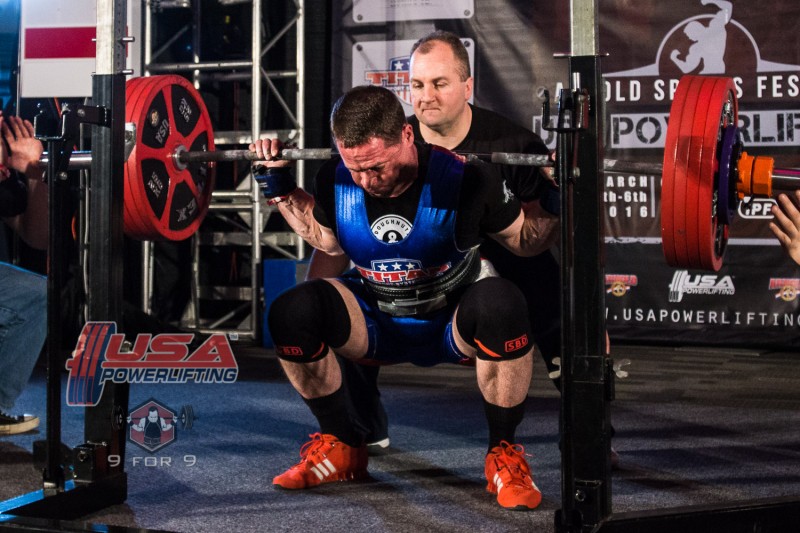

I don't know about "the agony of training". Yeah, I push myself, but it is fun. I have a "competition" going on with a 28 year old that just pulled 700 pounds at a meet. I keep yelling at the gym, "I'm only 275 pounds away, youngster!". We also "compete" at the viking deadlift. He has over 1000 pounds. I'm at 610. I'm catching up!!!
Thanks for the comment. It's simply amazing the effect and impact that powerlifting can have on some one. I'm delighted to hear that at 58 years you're still out there kicking ass! This certainly dispels the widely propagated construct of older folks being unable to perform at as high a level as their younger, more "metabolizing" counterparts.
As far as "the agony of training" goes; training can be agonizing. Although powerlifters universally embrace the spoils of their training. The effects to the body and CNS can be devastating. This is why recovery and de-/unload phases of training are just as critical as all the heavy stuff. Keep having fun with your training and I'm sure your 27 year old partner is just as motivated by you as you may be by him. Cheers and lets keep the gain train move'n!
For many who are not so specialised, Powerlifting can be part of bodybuilding, so that good looking body is part of the attraction.
It des not require much equipment for the non elite lifters, you can powerlift at home. So it is cheap for the most part. If you are not so well off, powerlifting can be an accessible pursuit.
If you are unemployed/underemployed or have a non physical job, which is more than ever the case, powerlifting preserves and improves the physical side of things in an efficient way , time and money included.
It gives a sense of acceptability (in a world which often does not) which bodybuilding maybe doesn't. Bodybuilding is suspiciously "deviant" to many. I am not saying it necessarily is, just many see it like that.
It offers instant gratification, every training session can push the boundaries. Can be quite monotonous but also scary intense, a real feeling.